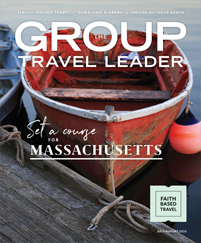The landmarks and memorials dotting the Southeast provide a testament to the Civil Rights Movement’s key figures and bear witness to its bloodiest conflicts. They also enshrine the places where the fight for justice and equality was victorious.
From the Edmund Pettus Bridge to the boyhood home of Martin Luther King Jr., this itinerary spans two states and encompasses two state capitals. It begins in Birmingham, Alabama, then takes travelers south to Selma. From there, the path winds east to Montgomery and then to Albany, Georgia. The final stop is Atlanta.
Birmingham, Alabama
Founded as an industrial hub for iron and steel during the Reconstruction period, Birmingham has since become Alabama’s most populous city. Visitors will enjoy its culinary scene and outdoor attractions, but many of the city’s most popular attractions relate to its role in the Civil Rights Movement, during which it became a backdrop to much of the violence and tension in the region. Visitors can tour the Birmingham Civil Rights Institute, a museum chronicling the movement’s struggles and triumphs. They can also see the places of worship that were integral to the movement, such as 16th Street Baptist Church, the site of the 1963 bombing that killed four young Black girls, and Bethel Baptist Church, which was the headquarters for the Alabama Christian Movement for Human Rights.
Selma, Alabama
Selma is steeped in the history of the Civil Rights Movement, frequently finding itself in the national spotlight because of its relevance to voting rights campaigns. One of the city’s Civil Rights Trail sites, since named a National Historic Landmark, is the Edmund Pettus Bridge, the site of the infamous Bloody Sunday beatings. These horrific beatings, carried out by state troopers against 600 voting rights advocates, were televised and are credited with an increase in public support for the movement. The Selma Interpretive Center, next to the bridge, explores the movement with exhibits and marks the beginning of the Selma to Montgomery National Historic Trail. When in Selma, visitors can tour the National Voting Rights Museum and Institute to hear from volunteer guides with firsthand accounts of the fight for voting rights.
Montgomery, Alabama
As Alabama’s capital, Montgomery bore witness to many pivotal moments and figures within the Civil Rights Movement. The city is even known as the movement’s birthplace, thanks to the many protests and demonstrations held there, from the Montgomery Bus Boycott to the Selma-to-Montgomery March. There are abundant opportunities for visitors to explore its rich history, from touring the capitol to visiting iconic trail sites such as the Civil Rights Memorial Center, which features four galleries dedicated to highlighting the movement and its heroes. Several additional museums, such as the Freedom Rides Museum and the Rosa Parks Museum, tell the story of the bus boycott. There’s also the Dexter Avenue King Memorial Baptist Church, where Martin Luther King Jr. served as pastor for several years.
Albany, Georgia
Located in Georgia’s Southwest corner, Albany is a hub for nature and Native American culture. Its major attractions include the Chehaw Park and Zoo, Flint RiverQuarium, and Thronateeska, a three-museum campus exploring history and science in the region. Travelers should also visit the Ray Charles Plaza, featuring a memorial to the late musician, and explore the city’s extensive Civil Rights heritage. One trail site, the Albany Civil Rights Institute, is located in Old Mount Zion Baptist Church, the birthplace of many activist and advocacy groups, and features a large database of research and resources detailing the Civil Rights Movement in Albany. The city is also home to Shiloh Missionary Baptist Church, where Martin Luther King Jr. spoke to a crowd following his speech at Old Mount Zion Baptist Church.
Atlanta
From touring the World of Coca Cola to visiting the Georgia Aquarium, Atlanta has no shortage of activities. There’s film history, art and a diverse food scene, which travelers can experience with a trip to one of its many food halls. But Atlanta also has a rich Civil Rights history, being the birthplace of one of the movement’s most pivotal figures, Martin Luther King Jr. King’s birth home can be found within the Martin Luther King Jr. National Historical Park, a must-see landmark that also features the church where King was baptized, Ebenezer Baptist Church. Another relevant site is the National Center for Civil and Human Rights, a museum that takes visitors through a range of exhibits that document the movement and the global fight for human rights.











